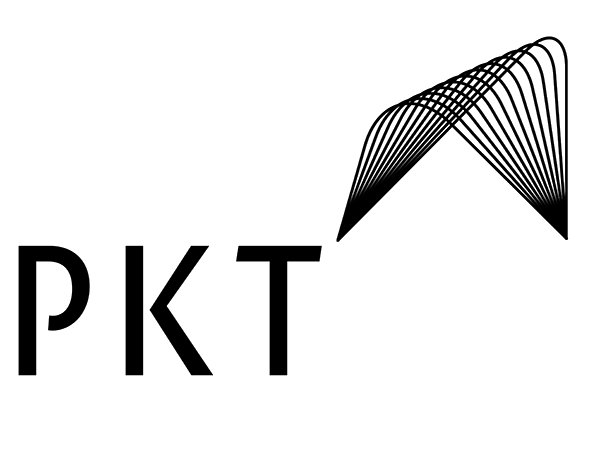
Executive Education | Professional Courses & Training | Boost Your Career
Executive Education is an increasingly popular way to enhance one’s career. These courses and professional training workshops provide individuals with the knowledge and tools they need to excel in the competitive corporate or academic environments. The rise of the knowledge-based economy has made taking advantage of executive education and professional training more important than ever.
When it comes to executive education, there is no limit as to what one can learn. From classic business classes such as marketing, finance, and accounting, to specialized workshops on everything from leadership, technology, and social media, the list of topics is extensive and ever-growing. As more companies and organizations recognize the importance of having a highly trained executive staff, they will continue to invest in executive education as a way to gain a competitive edge in the industry.
Choosing the right executive education program is essential for those looking to quickly boost their career. It is important to do research and find a program that fits one’s career goals and time frame. Executive education programs can range from online programs to live classes and seminars, so it is important to find a program that fits best for one’s lifestyle and learning needs. Additionally, when selecting a program, it is important to ensure it is offered by a reputable institution and will provide you with industry recognized certification and credentials.
Executives taking part in executive education programs also often enjoy the chance to network with peers, industry leaders, and even potential employers. These meetings and conversations offer executives a unique opportunity to learn from individuals they may not have access to in their everyday work environment, which can open up a world of new professional opportunities.
In today’s quickly changing professional environment, executive education can be a crucial way to stay ahead of trends, technologies and current industry practices. Whether one decides to pursue a formal degree or they want to enhance their existing degree, executive education is quickly becoming an essential part of any professional’s career development plan. Investing in executive education is an investment in one’s career and future. And with the right program and drive, executives can make the most of their executive education journey and see an immediate return on their investment.
Gathering Information to Find the Right Executive Education Program.
The path to success in any career starts long before you’ve been hired—it starts with furthering your education. The blossoming executive today needs a comprehensive blend of strategic executive education programs, subject matter experts, and over-arching trends to determine the right career to pursue and the steps needed to achieve it. Smart executives conduct research and tinker with their approach to shape the best decision for themselves and the business involved. There’s a lot to consider, and it’s not always easy to accomplish the struggles that come from narrowing down your options.
Digging Deeper: Back to Basics
To effectively carve out a strategy for career growth, it’s best to begin with the basics. Research available executive education programs for their particular topics, coursework, and target audiences. Also, be sure to take a look at the program’s curriculum, career objectives and learning environment. After this, look for programs that offer internships, mentorship, and other support. Finally, look for executive education programs that will challenge you and maximize any company investments.
Blending Knowledge and Insight
With the right knowledge and insight, executives can make their decision a bit easier. There’s a lot to consider when scouting out great executive education programs—like quality, career potential, cost, size and quality of the program, geographical setting, and international or global connections. It’s great to see where the program will take you, but remember to weigh the expected outcomes against the potential risks of attending. Every executive needs to be aware of any long-term agreement or commitments associated with their program choice, as well as industry standards that may be different from your own.
Getting it Right
Having a clear vision of one’s ambitions and goals is necessary for success. Executives must commit to the program to reap any rewards. An executive education program should extend far beyond the classroom. Online research is a must, which means reading and understanding the curriculum, carefully researching faculty, reading university publications, and learning about the career paths of successful alumni. Executives should also look for helpful resources from vendors that may not be obvious on the surface, like internships and workshops, access to mentorship and consulting opportunities, and access to exclusive events that give more insight into their industry.
Wrap Up
Ultimately, success starts with thoughtful, methodical research. Take the time to make sure the executive education program you choose is the right one. Make sure you have a comprehensive understanding of the curriculum, course requirements, mentorship, and outcomes before signing up. Being both smart and organized will help make the most informed decisions and develop the best career path. The perfect executive education program is within reach.
Career Advancement Strategies.
Everyone wants to work towards career advancement. Whether you’re a new professional just starting out or an experienced veteran of the workforce, you can’t go far without establishing and implementing successful strategies for career advancement. From expanding your knowledge to utilizing your current skills, there are several strategies you can take to further your professional development while advancing your career.
Skill Development
The first and most important step to career advancement is improving and developing your existing skills.The more competent you are at what you do, the more prestigious and lucrative your roles in the industry will be. The best place to start is by assessing the current strengths and weaknesses of your skillset. Identify areas you want to grow in, either by participating in courses, attending conferences, or honing your practical experience. If you find yourself in a field that’s quickly becoming irrelevant or on its way out, tweak your skillset and aim to develop roles that are more likely to stick around.
Networking Networking
might seem daunting, especially to those just starting out, but it is an invaluable tool for career advancement. Your network of contacts can vary from co-workers, clients, employers and predecessors to classmates, alumni, mentors and even those in comparable companies. It is important to reach out to your acquaintances for advice and help, as the more connections you make in the industry, the easier it will be to advance in your career. Additionally, never underestimate the power of a simple ‘hello’ – introducing yourself and going up to someone new can open up unexpected doors and connections.
Negotiation
Negotiation is one of the most important skills to have to improve your career prospects. Those professionals who know how to negotiate a better salary and remuneration packages or better roles are those who will get ahead in their careers. It is important to be able to negotiate confidently, without appearing too desperate to secure the package. It is also wise to present solutions to problems rather than simply stating your needs. Negotiation is a dialogue – be aware of both sides’ needs and try to come to a mutually beneficial agreement.
Keep Your Eyes on the Goal
It is easy when planning your career to get caught up in small tasks and lose sight of the big picture. To make sure that you stay on track, it can be beneficial to set goals and objectives for yourself during the year. Work out a timeline and deadlines for the achievements you’re setting out to do and include measurable yardsticks to judge your success – whether it’s job promotions, building relationships or new qualifications. That way you will always have clear objectives and ambitions guiding you forward in your career.
Remember – you only have one career and it is important to stay on top of your professional development. Whether it’s through skill development, networking, negotiation or goal setting, bettering yourself and your career prospects is down to you. Make sure you look ahead to the bigger picture and put the strategies in place now to make sure you get where you want to be in the future.
Talk to us about planning your next Management Retreat
Leadership retreats for executives




